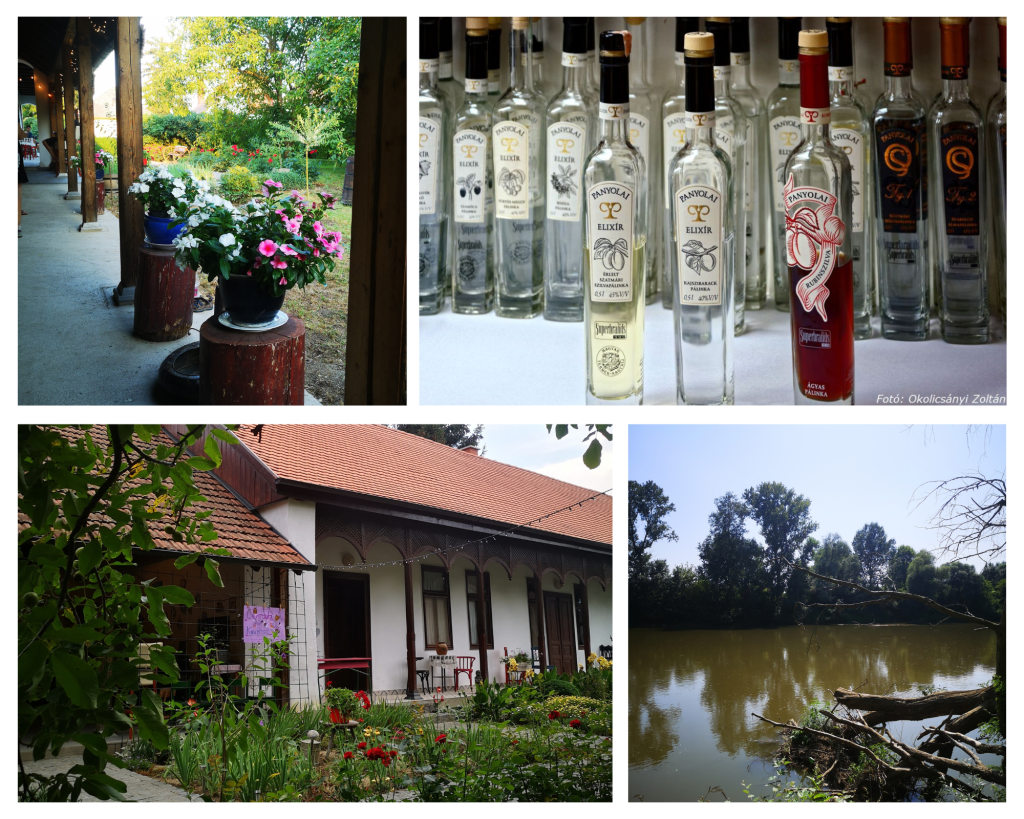Hey everyone! It’s Tanahis, and I’m thrilled to share the incredible experiences of my first month as a European Solidarity Corps volunteer here in Hungary. From savoring the unique flavors of Hungarian cuisine to exploring enchanting places and forging new friendships, it’s been a journey filled with discovery and warmth.
The Culinary Adventure:
One of the highlights of my month has been the gastronomic adventure through Hungarian cuisine. I couldn’t help but notice the Hungarian love for frying, a culinary quirk I thought only Americans embraced. Trying traditional dishes in a local restaurant opened my eyes to a world of flavors. Palinka, a drink the locals take immense pride in, turned out to be a bit too intense for my taste, but discovering Tokaji wine was a game-changer, I’ve found my new favorite wine, thanks to its delightful sweetness.
Winter in Hungary wouldn’t be complete without a visit to the Christmas market. Sipping on hot wine infused with cinnamon and indulging in local delights like langós and Kürtőskalács made the festive season truly magical.
Exploring Hungary:
Venturing beyond my immediate surroundings, I had the opportunity to explore some beautiful places in Hungary. Visegrad, where I attended my On Arrival training, captivated me with its charm. The views from the Visegrad Castle were nothing short of breathtaking. Budapest, with its stunning Christmas market, left me in awe. Although time constraints kept me from the inside of the Buda Castle, I can’t wait to return and delve deeper into the city’s wonders.
In Debrecen, the array of cool coffee shops, with Black Sheep topping my list, added a delightful touch to my days. The city’s Christmas market and lights were a visual feast that I won’t soon forget.
Connecting with People:
One of the most rewarding aspects of this journey has been the people I’ve met. From the people of the association who warmly welcomed me to the incredible individuals I encountered during my On Arrival training, every interaction has been inspiring. The sense of camaraderie and care within the association made me feel very comfortable. I’m eagerly looking forward to reuniting with the fantastic folks I met during the training at the upcoming Mid-Term session.
Work in the Association:
Surprisingly, I found a deep appreciation for my work in the association. Engaging with students in classes has been incredibly fulfilling, especially witnessing their interest when I prepare activities for them. The human connections and the exchange of ideas that flourish in our conversation clubs it’s undeniably the best part of my work.
Personal Reflections:
Reflecting on this month, it’s been a rollercoaster of emotions. Adapting to so many new things at once was occasionally overwhelming, especially as it’s the first time I’ve lived away from my family. The challenges of living independently were real, but they were the challenges I wanted. Amidst it all, I couldn’t help but miss home, family, friends, and the life I left behind in my home country.
As I wrap up this reflection on my first month in Hungary, I can’t help but feel grateful for the richness of experiences. The flavors, the places, the people, and the work have collectively shaped an unforgettable chapter. I’m excited about what the future holds and look forward to sharing more of this incredible journey.
Tanahis



















